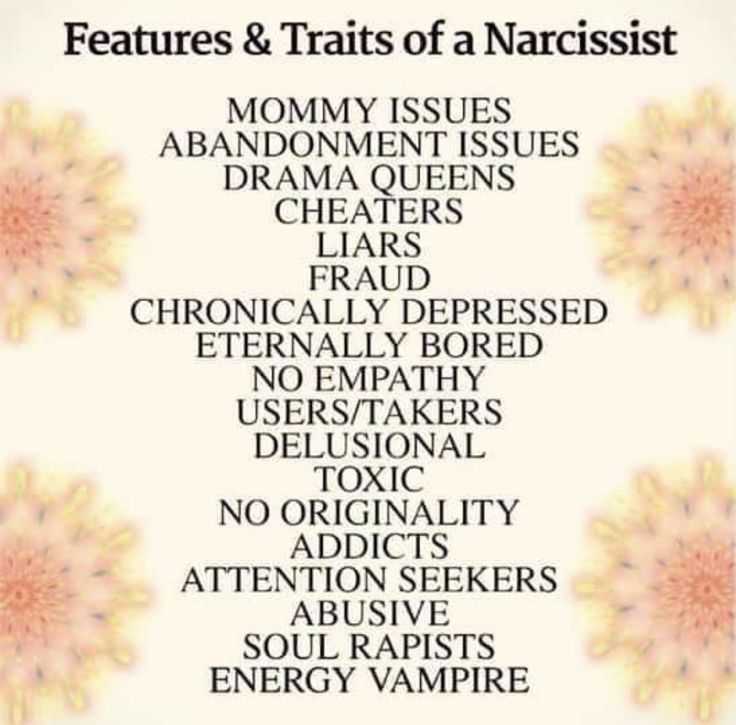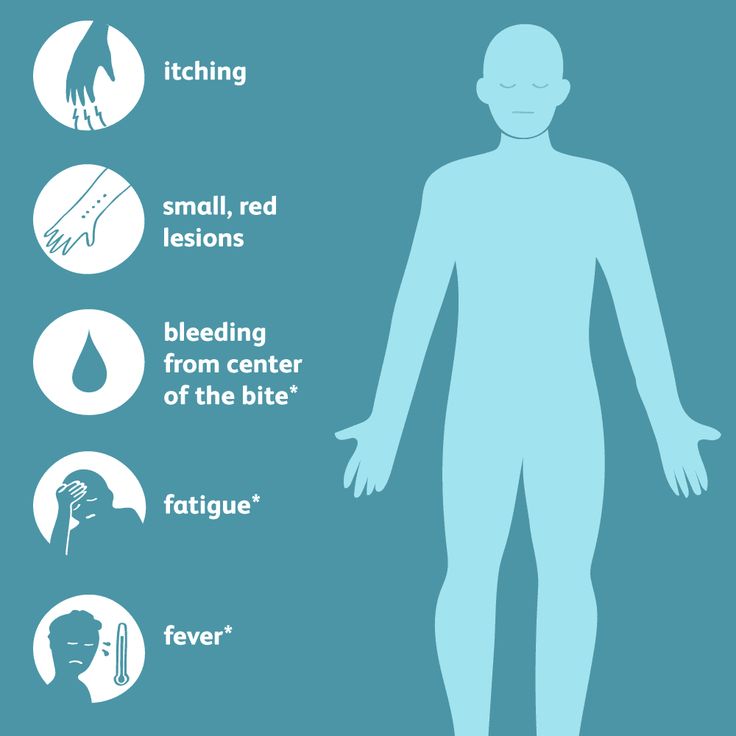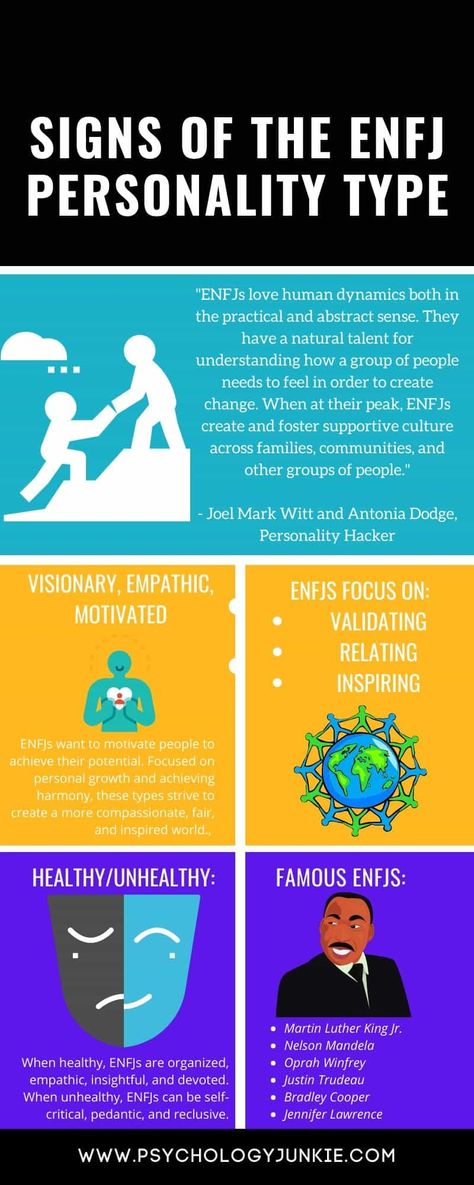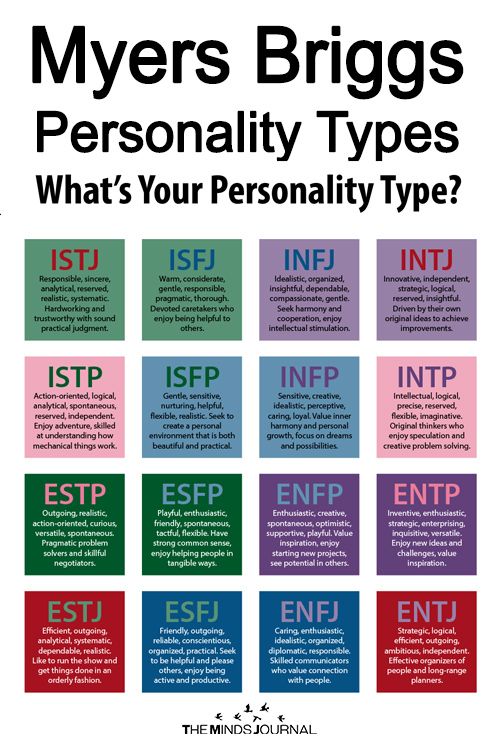Narcissist mom traits
Tips to Cope with Narcissism in Parents
Narcissistic Mother
How to Cope with Having a Narcissistic Mother
Part of being a child means looking to our parents for love, support, and encouragement. Our parents set the foundation for feelings of safety and trust in others. It is important for children to feel seen and heard by their loved ones as they grow up. It can be really painful to grow up with a parent who denies a child of these emotional security blankets. Unfortunately, this is the reality for children who grow up with narcissistic mothers.
A narcissistic mother is unable to give their child the full attention and validation they need to feel loved and emotionally secure. This may impact the child’s beliefs, behaviors, and self-esteem well into adulthood.
Keep reading this article to learn about narcissistic mothers and how to cope with the pain that comes with having one.
What is Narcissism?Some narcissistic mothers could meet the criteria for Narcissistic Personality Disorder (NPD). This is a psychological personality disorder characterized by a specific set of traits. A narcissistic mother may feel entitled or self-important, seek admiration from others, believe she is above others, lack empathy, exploit her children, put others down, experience hypersensitivity to criticism, believe she deserves special treatment, and worst of all, maybe naïve to the damage she is causing.
In addition, a narcissistic mother may use her children to advance her own goals and wishes, at the expense of the child’s desires and even emotional or physical needs. For example, a narcissistic mother may order her child to help with her bags after complaining of being tired from a long workday and not care to ask her child about how their day at school went. As a result, the children of narcissistic mothers may grow up feeling confused, invalidated, inferior, and unloved.
Characteristics of a Narcissistic MotherWhile not all narcissistic mothers have NPD, expressing narcissistic tendencies can be just as damaging to a child. Here are some telltale signs you may have a narcissistic mother.
Here are some telltale signs you may have a narcissistic mother.
- She constantly makes the conversation to be about her
- Brags about your achievements to others, but rarely validates or acknowledges you personally
- Blames others for any problems you may have that stem from her behavior
- Is well-liked and important to others, but controlling and harsh when no one is looking
- Makes you feel bad for not doing what she wants immediately
- Makes you feel guilty by boasting about how much she does for you
- Harshly opinionated at home but puts up a front for people she dislikes
- Ruthless and unforgiving, doing anything she can to be on top
- Makes you feel anxious and often lowers your confidence
If you feel you have been affected by any of these traits, here are some things you can try to cope with having a narcissistic mother:
-
Make Some Room: When she doesn’t get her way and takes it out on you, don’t be passive! Let her know this way of dealing with her anger is not constructive.
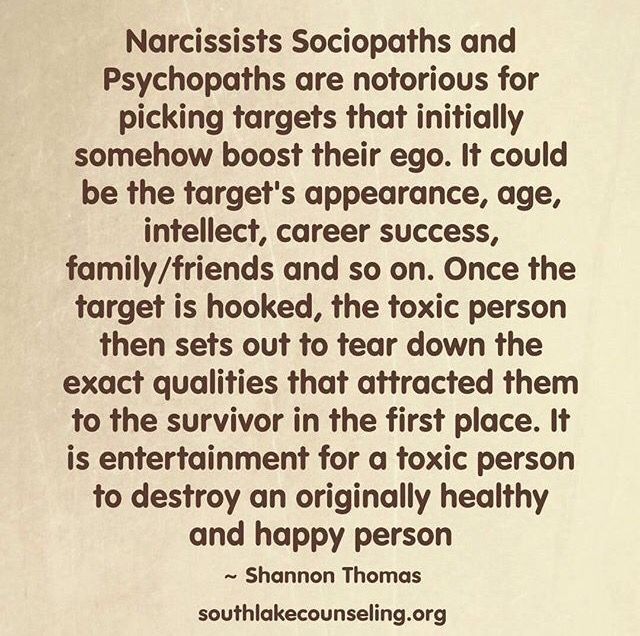 Strategies to diffuse the situation can be challenging to come up with on your own on the spot so it is best to think in advance and be prepared for the next time that this happens.
Strategies to diffuse the situation can be challenging to come up with on your own on the spot so it is best to think in advance and be prepared for the next time that this happens. - Accept and Let Go: Try to accept that her narcissism is rooted in an established pattern of beliefs and behaviours, and this is not your fault. Remember that her hurtful words and actions come from her problematic personality and they are probably not true about you and you don’t really deserve to be treated in an inconsiderate manner.
- Have Some Confidence: Dealing with a narcissistic mother can be deeply painful as she may not recognize your accomplishments and strengths. In recognizing her narcissism, it is also important to recognize your own self-worth, even when she downplays your strengths. Engaging in hobbies that enhance your skills and sense of accomplishment will help to boost your confidence.
- Lean on Others: While nothing can replace the validation a child receives from their mother, there may be other supportive figures you can lean on like friends, teachers, co-workers, or other family members that you are close to and show empathy and care about you.
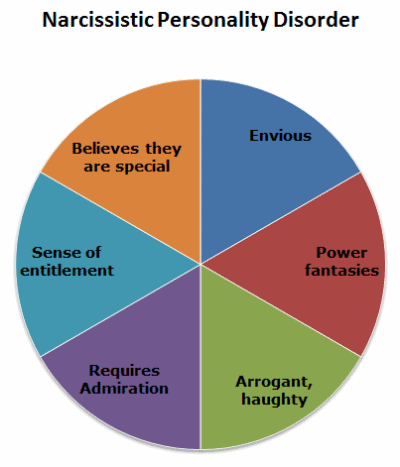
If you ever feel your safety or mental health is at risk, it may be necessary to keep your distance altogether, read books to understand this condition, and maybe get help from a caring therapist.
Here is a video of licensed therapist Kati Morton discussing some of the consequences of narcissistic parenting and strategies to cope with it, including trauma therapy, which is further discussed below:
When to Get Professional HelpIf you feel like you went through a lot growing up with a narcissistic mother, you may need to address the issues and trauma left behind. You may want to consult with a therapist trained in Cognitive Behavioural Therapy and Trauma Therapy. A psychotherapist knowledgeable about narcissistic parents may help you recognize your childhood pain and any effects of trauma, help you heal and move forward.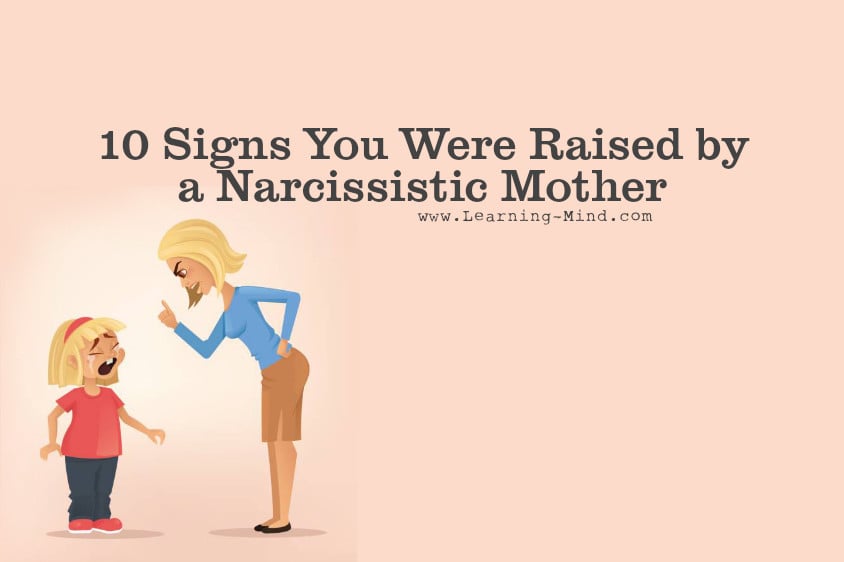 A therapist can also help you replace the lingering negative maternal voice in your head with a healthier one.
A therapist can also help you replace the lingering negative maternal voice in your head with a healthier one.
Knowledge is power. Becoming aware of the shortcomings of your narcissistic mother can leave you with a sense of freedom and power. Addressing your issues in therapy may allow you to free yourself from negative core beliefs that you may have developed as a result of the parenting that constantly made you feel inferior or inadequate and develop the sense of value and respect that we all deserve.
Edited by Dr. Silvina Galperin, C. Psych.
Post Views: 59,981
Narcissistic Mother: 12 Signs & Effects On Children
What is a narcissistic mother?
Me, myself, and I. And nobody else should ever dare to steal the spotlight.
This is what a narcissistic mother is essentially about.
While a healthy amount of self-love is important so we respect and care for ourselves—and also show others how we should be treated—the narcissistic mother is all about her.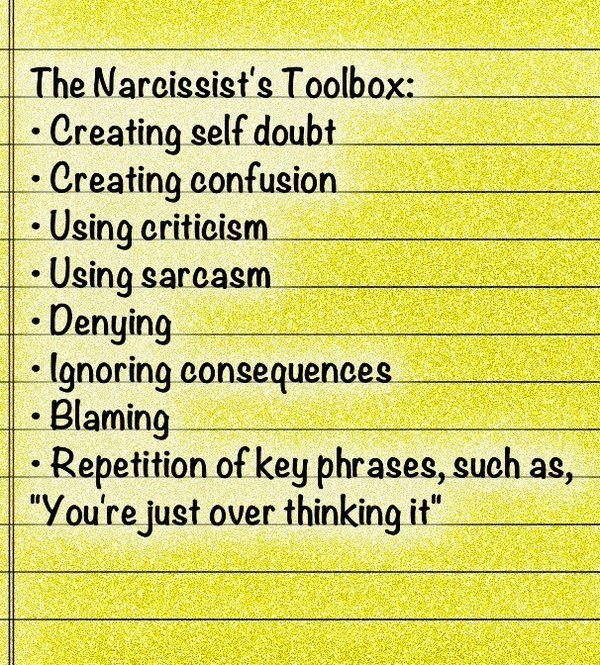 She believes she is entitled to that, and she is incredibly self-absorbed. It's one rule for her and another rule for everyone else.
She believes she is entitled to that, and she is incredibly self-absorbed. It's one rule for her and another rule for everyone else.
Whether she is a grandiose narcissist who needs to be the loudest or shine the brightest or the vulnerable kind who has to compete about who's suffered the most, she lacks empathy for everyone except herself. Sometimes, it's a combination of the race to the bottom and the top. And she may even enjoy watching her own children suffer, as she plays out her manipulative machinations.
When we say narcissistic personality disorder (NPD) in psychology and psychiatry, what we're really meaning by "personality disorder" is that this pervades their functioning in life, affecting their relationships, careers, and well-being. Hence, the qualifier "personality." And someone with NPD will not, and cannot, change.
Signs of a narcissistic mother:
1.
Treating her children as an extension of herself
You are treated as an extension of her, not your own person.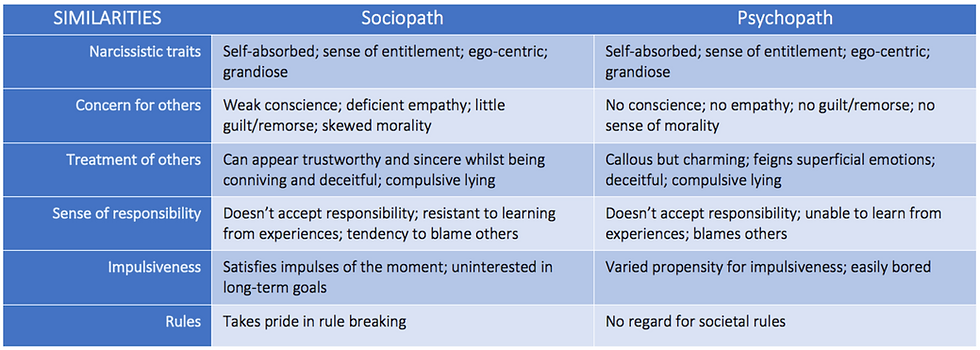 You are effectively your mother's trophy. Everything good you do is considered a reflection of her—her superior genetics and her hard work in raising you. And she'll never stop bringing it back to it being all about her, plus she'll dramatize it all. Or steal someone else's credit, like claiming she worked her fingers to the bone to send you to violin classes when your father paid for it. Naturally, anything you do or aspire to that does not align with what will make her proud will be shot down.
You are effectively your mother's trophy. Everything good you do is considered a reflection of her—her superior genetics and her hard work in raising you. And she'll never stop bringing it back to it being all about her, plus she'll dramatize it all. Or steal someone else's credit, like claiming she worked her fingers to the bone to send you to violin classes when your father paid for it. Naturally, anything you do or aspire to that does not align with what will make her proud will be shot down.
Advertisement
This ad is displayed using third party content and we do not control its accessibility features.
2.
Playing children against one another
Classic narcissist family dynamics are when a narcissistic mother elects a "golden child" who can do no wrong and then a scapegoat who's blamed for everything. Sometimes, there is also a "lost child" who's neglected. By triangulating children against one another, the narcissistic mother keeps everyone in their place, teaching them they need to work for attention or that they don't deserve it at all.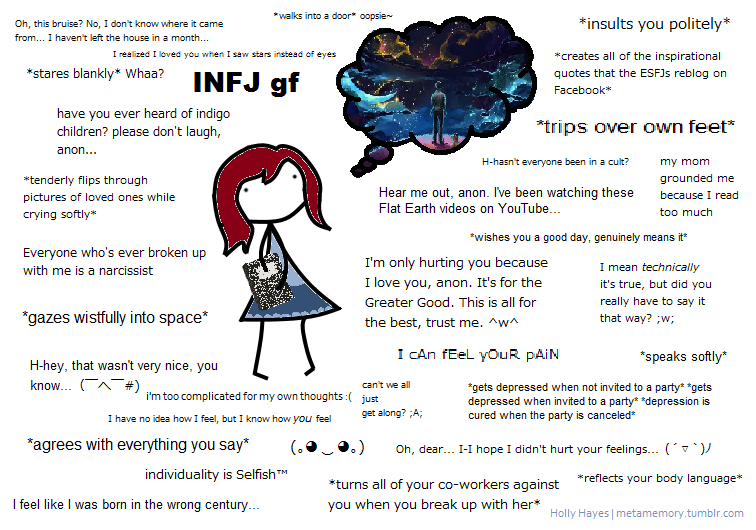 Part of this could be a sadistic drive to see their kids suffer. Some mothers rotate these roles among their kids, or they could play their child against a cousin or neighbor, in the case of single-child families.
Part of this could be a sadistic drive to see their kids suffer. Some mothers rotate these roles among their kids, or they could play their child against a cousin or neighbor, in the case of single-child families.
3.
Petty rivalry with her own children
You should never outshine Mom in her talents or appearances, unless she's groomed you to do so. Even then, as she gets older, she will become jealous and find ways to put you down or destroy you.
Advertisement
This ad is displayed using third party content and we do not control its accessibility features.
4.
Gaslighting
Here's when someone screws with your sense of reality, so you no longer trust yourself and become dependent on their version of reality. Gaslighting is a classic element of narcissistic abuse. As children, we don't expect our loved ones to do something so horrendous. Often you don't know you are being gaslighted—it's a poison that spreads insidiously.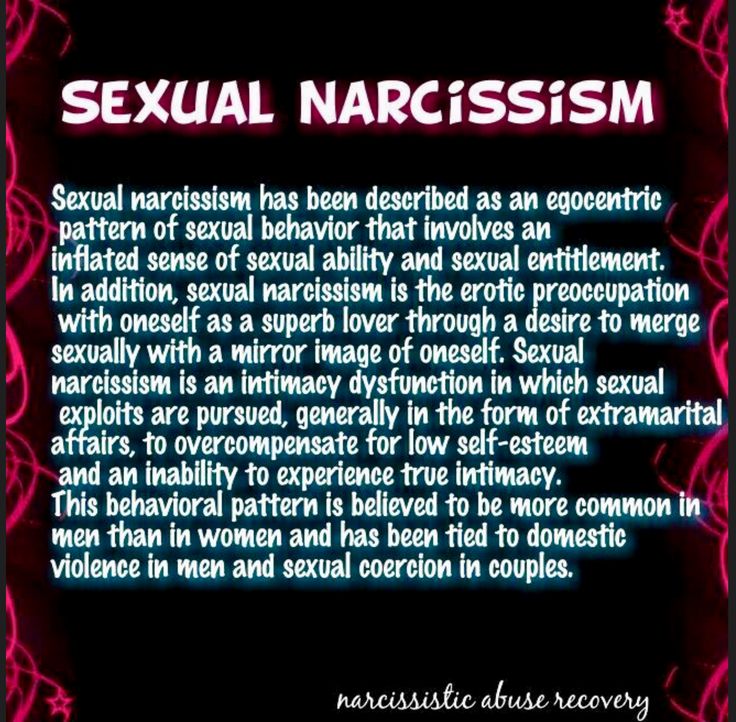 You'll be told you are too sensitive, crazy, or some other derogatory adjective. Eventually, you gaslight yourself.
You'll be told you are too sensitive, crazy, or some other derogatory adjective. Eventually, you gaslight yourself.
5.
Emotional Münchausen by proxy
Münchausen syndrome is when someone benefits from playing ill or continuing to be ill after healing. Some narcissistic mothers sometimes "train" their children to play ill—often in the form of fears, or even hurting themselves—by only intermittently giving them comfort and attention when they fulfill these roles. Not only does the inconsistent care teach the children that they are not worthy of energy, but by putting them in an inferior position where they are ill or weakened, it keeps them small and feeling small, which might even delight the narcissistic mother who's watching this sadistically, or simply make her feel more powerful and needed.
Advertisement
This ad is displayed using third party content and we do not control its accessibility features.
6.
Damaged goods
A subtle but effective way to teach a child they're unworthy and that they're damaged goods is to give them presents that are damaged. This is incredibly common in narcissistic mothers, and you train yourself to think it must have been an accident. Because, why would your mother do that? Eventually, while they are sadistically enjoying watching you squirm while being polite, you learn to talk yourself through any uncomfortable situation with them.
This is incredibly common in narcissistic mothers, and you train yourself to think it must have been an accident. Because, why would your mother do that? Eventually, while they are sadistically enjoying watching you squirm while being polite, you learn to talk yourself through any uncomfortable situation with them.
Effects on children.
Advertisement
This ad is displayed using third party content and we do not control its accessibility features.
You are incredibly attuned to others' feelings.
Never knowing when your mother would be decent or hostile, you walked on eggshells, and your radar on others' emotions is finely attuned. In the world of medical tests and statistics, we call an oversensitive test one that produces false positives. Meaning, something that should not test "positive" because it is not present yields a "positive" result.
This is because having a more acutely sensitive antenna helps you to survive.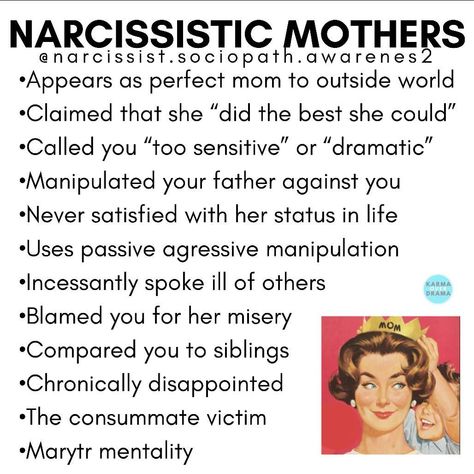 It's better to think Mom is gonna treat you badly, so you learn to run away before it happens, "play dead" by making yourself as invisible as possible, or be obsequiously nice to please her. Just in case.
It's better to think Mom is gonna treat you badly, so you learn to run away before it happens, "play dead" by making yourself as invisible as possible, or be obsequiously nice to please her. Just in case.
These trauma responses are so deeply embedded within you, they act on autopilot. You're likely to be this way in other relationships—and you're hypervigilant for any time you may get into trouble, always in a state of anxious watchfulness. This severely depletes your energy levels and health over the long term. But because you've lived with this your entire life, you're not aware of just how exhausted you are. Until you get some respite.
But you have poor emotional intelligence.
You may be wondering, how can you be incredibly attuned to others but have poor emotional intelligence? This is because the other side of the equation of emotional intelligence hinges upon being aware of your own emotions and being able to take care of yourself.
Unfortunately, a narcissist's children are brought up to dismiss how they feel.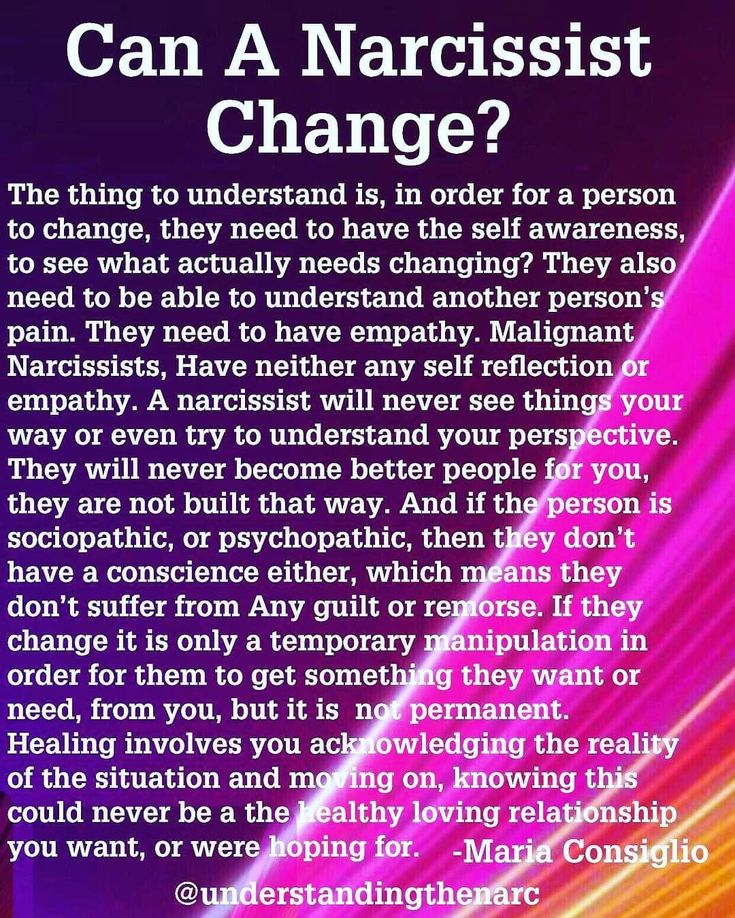 Not only did Mom invalidate or gaslight you, but you also learned that the best way to survive is not to feel anything. Instead, it's to convince yourself by being overrational, that it's not that bad. And to stay positive—aka, toxic positivity.
Not only did Mom invalidate or gaslight you, but you also learned that the best way to survive is not to feel anything. Instead, it's to convince yourself by being overrational, that it's not that bad. And to stay positive—aka, toxic positivity.
Everybody is born with an innate sense of what's right and what's wrong—our intuition tells us that. But because you've learned to smother your gut, silencing it in order to survive, you don't know when your body is screaming out to warn you against other toxic people.
Blame, shame, guilt—the unholy trinity of a narcissist's victim.
Because you have fabulous empathy for others—telling yourself that "hurt people hurt people," that Mom has her reasons for acting this way—the only way to maintain such unnaturally high empathy reserves is to blunt any empathy you have for yourself.
As children, the easiest way we take control of situations is to blame ourselves. If you were to visualize self-blame as a muscle, then by adulthood, this well-pumped muscle has become the size of the Hulk.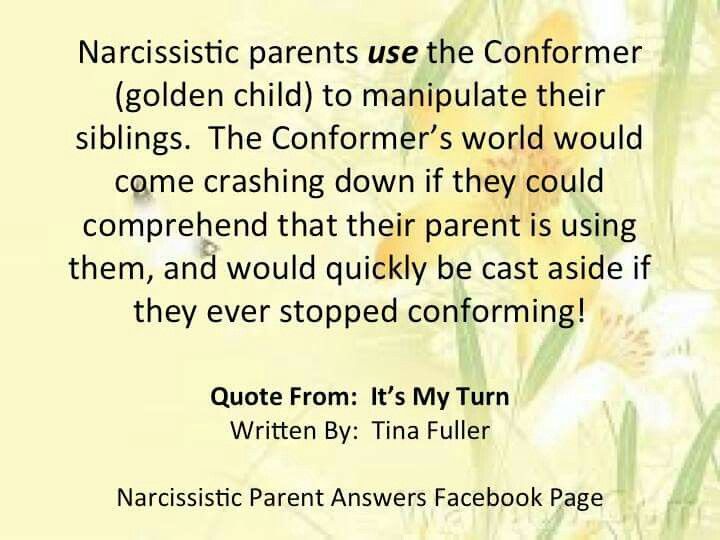
You'll experience guilt for things you did and the things you did not do. For being human—experiencing certain emotions, making mistakes every human makes—and for the things others did, that you blame yourself for. And you'll shame yourself because you see yourself as a fundamentally bad and unlovable person.
You have terrible or nonexistent boundaries.
Children raised by narcissistic mothers often grow up to have poor standards and poor boundaries. While standards are the Hell yeses in your life, boundaries are the Hell noes. And if you're not aware of what those are, then you don't know when they are being transgressed. And even when something feels off, you're able to talk yourself into why you're being too sensitive or unkind. Meaning, you gaslight yourself.
Otherwise, if you kinda know what you do not stand for, and even sometimes say your peace, deep inside you do not believe you have permission to have boundaries. And so, people don't honor them.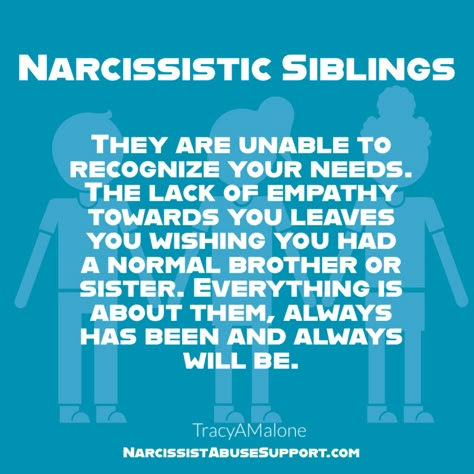
You also overgive and solve others' problems unsolicited—that's way easier than taking care of yourself.
You keep trying to have a "do-over" with Mom, or with someone else like her.
The thing about growing up under the clutches of a narcissistic mother is that the trauma leads to repetition compulsion.
What these two fancy words really mean is the trauma leads our brains to bring us back to similar situations to resolve the original trauma. But because this is largely unconscious, your brain brings you back to repeat the same patterns with Mom or with someone like Mom—even a person who's a romantic partner of another gender or someone who's younger than you. And of course, such toxic situations mean that the trauma never resolves itself; instead, it compounds. Repeat this situation enough times, and it feels like a never-ending bad magic spell. You learn to be helpless and start believing that this curse is your destiny.
Because it's unconscious, you are suckered back into such relationships over and over again.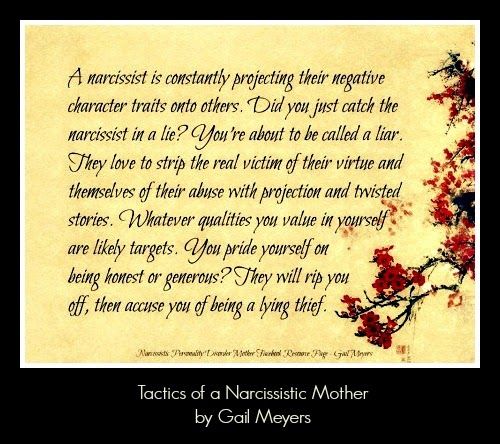 The traumatized child inside you believes, "If I work harder, this time, it will be different."
The traumatized child inside you believes, "If I work harder, this time, it will be different."
You develop an insecure attachment system.
Attachment is a way we can understand how we perceive and respond to intimacy in relationships. While genetics and other life experiences matter, the way our parents cared for us is a major force in shaping our attachment styles.
Being brought up by a narcissistic mother, you might develop an insecure attachment. If you're anxiously attached, you could fear that your partner does not want to be as close as you'd like them to be and interpret many things unnecessarily negatively. You might lash out and then feel worse. Or, you could protect your autonomy at all costs, keeping others at arm's length and being a closed book. This is detrimental to nurturing intimacy because an avoidantly attached person is always misinterpreting others as impinging upon their independence. Or, you could be a combination of both anxiously and avoidantly attached.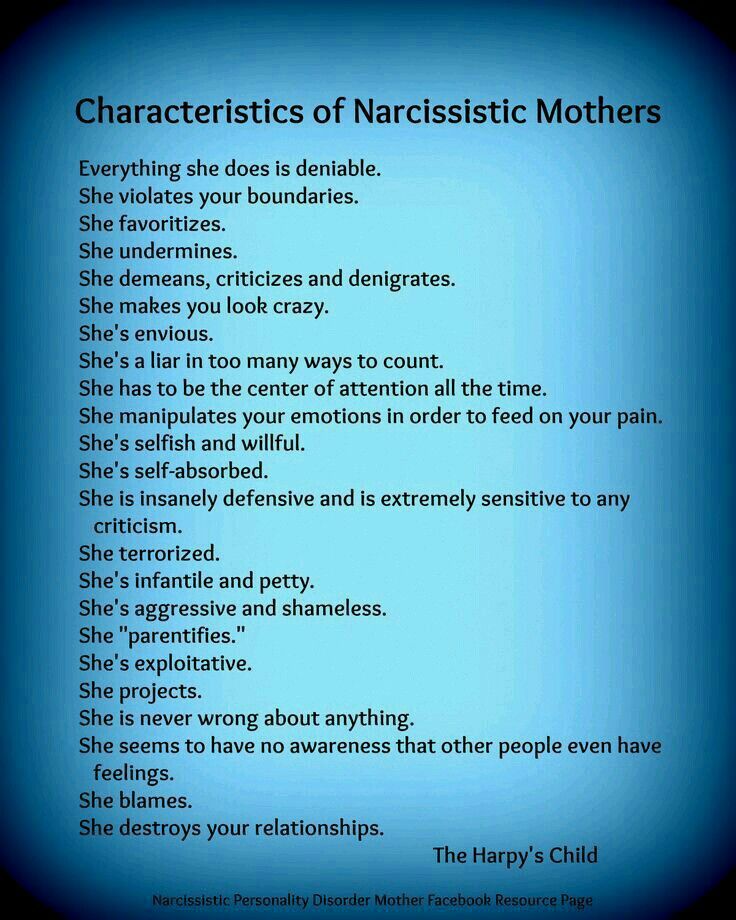
How to heal and find peace:
1.
Stop blaming yourself.
If you suspect or realize your mother may be a narcissist, that Eureka! moment can be freeing. Things start to make sense. But you might end up blaming yourself for making her behaviors worse, not seeing through her earlier, not standing up to her—anything. Or you might be furious at yourself for not knowing what things like boundaries and attachment are.
First things first. We went to school and learned loads of nifty formulas and facts—you might even have many, many fancy degrees. But we didn't learn crucial life skills and financial fluency or boundaries. So please, enough beating yourself up. Otherwise, you've left the playground, but you've become your own bully. 24/7.
2.
Recognize her intentions and act accordingly.
Next, when dealing with your mother, put yourself in Law of the Jungle Mode. Law of the Jungle means you consider what moves your narcissistic mother is making and how they are designed to trip you up. Look at the bigger picture of what's going on, and then deal with her as impassively as possible. (This is also sometimes referred to as the grey rock method.)
Look at the bigger picture of what's going on, and then deal with her as impassively as possible. (This is also sometimes referred to as the grey rock method.)
You might protest that this makes you inauthentic. But you don't go to war without weapons or shields. Remember this, and you can then reserve all your energy and authenticity for those who have your back.
3.
Minimize contact.
While I advocate no contact—because you've paid enough, and you owe her nothing—I get that it's not always practical. In these cases, have as little contact as possible, and any form of you playing nice is strategic, not unconscious, in order to move the pawns on the metaphorical chessboard. For instance, you might want to praise her so she leaves you alone and gives you some peace. Rather than do it because you're hoping she'll finally be the (consistently) loving mother you never had.
It also means expect bad behavior from her. And discount any good behavior as flukes or costly manipulations you'll have to pay for later.
Do not be hoodwinked.
4.
Take care of yourself.
You will feel guilty and ashamed for abiding by the Law of the Jungle. Same with not being nice 24/7 to her. For daring to think she's a toxic person. You'll have to learn how to take care of these emotions and practice taking care of yourself. It sounds easy, but you'll need to keep practicing it—it's an alien subject that children of narcissists often don't believe they have permission to do.
You'll also have to take care of your nervous system, helping it to heal from the effects of trauma. Part of this may be also recognizing who else in your life is like your mother because chances are, it's a house of mirrors, and she's not the only narcissist in your life.
What this translates to is learning to give yourself permission to have boundaries and learning how to have boundaries—you lay down the law. Take comfort in the fact that you will learn to be more discerning and flexible with your boundaries, so it's OK to start rigid—like any skill you practice, it feels awkward and inflexible initially.
As you're doing these, you'll also be grieving deeply. You'll have to come to terms with the fact that the mother you always dreamed of will never be.
These would be things you should do with trained professionals—a mixture of therapy, coaching, energy- and bodywork, as well as supplementation, to take care of your gut and brain.
The other side.
You can feel like you're betraying your roots, or you may worry that healing may take forever.
The thing about healing is that's not your final chapter. Look to the person you'll become. Consider those beautiful chapters of your life, after healing. In essence, you'll become the champion and parent your younger self never had. This is the real "do-over."
May that comfort you and guide you forward in your journey toward true freedom and peace.
Setting Boundaries: 14 Signs Your Mom Is
An attractive, successful, charismatic woman who is admired by others can, like a mother, manifest herself in a very unexpected way - narcissistic. Her children feel confused and lost in life, always waiting for support from her. But the problem is that narcissistic moms don't know how to give either support or love. As a result, in adulthood, they are constantly looking for love that they did not receive in childhood. Signs are not easy to notice, but partners of such women may try to do this in order to have a positive impact on both the woman herself and the children. How to recognize a narcissist mother, we will describe below. nine0004
Her children feel confused and lost in life, always waiting for support from her. But the problem is that narcissistic moms don't know how to give either support or love. As a result, in adulthood, they are constantly looking for love that they did not receive in childhood. Signs are not easy to notice, but partners of such women may try to do this in order to have a positive impact on both the woman herself and the children. How to recognize a narcissist mother, we will describe below. nine0004
She has everything under control
She likes to have complete control over all aspects of children's lives - friends, music, clothes, habits... Manipulation is her favorite game, which she plays skillfully. Imposing a sense of guilt on a child through emotional blackmail makes children live by her rules. For example, "you need to learn how to be good at a computer if you're going to achieve anything, not waste your time in art class!"
She always turns the conversation to herself
The child may talk about problems at school or quarrels with friends, but the narcissistic mother will definitely redirect the conversation to herself.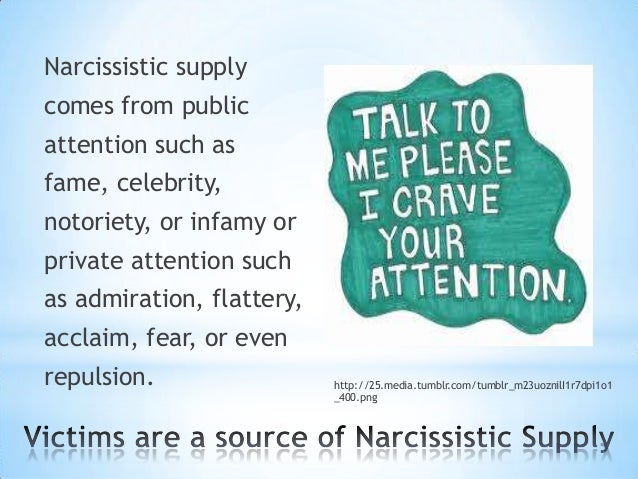 The child can talk about being sad because his friend is moving to another city, and the mother suddenly starts talking about how many friends she had as a child, who she was friends with at school and university, what she did, etc. .d.
The child can talk about being sad because his friend is moving to another city, and the mother suddenly starts talking about how many friends she had as a child, who she was friends with at school and university, what she did, etc. .d.
She gets angry when things don't go her way
Bad mood is a frequent companion of a narcissistic mother, and the child or someone else is always to blame. Such mothers will never admit that they are the problem. As a rule, the children and spouses of such women walk on tiptoe, just so as not to arouse the wrath of the mother. “That bill never arrived. Did you mail it? How could you?" They always shift the blame and never take responsibility for themselves. nine0005
She is very concerned about what others think of her.
Such mothers always strive to look good in the eyes of others, but they do it at the expense of their children and spouse. Before leaving for a visit or a movie theater, the narcissistic mother will not fail to remind you: “Don’t forget to say “please” and “thank you” to my boss/girlfriend” or “Comb your hair well - you have a bird’s nest on your head!” With the same ease, they take credit for the achievements of their children in order to look even better. nine0005
nine0005
She believes that the world revolves around her
Narcissists are selfish and believe that the whole world should revolve around them. As soon as they enter the house, they assume that everyone should already be at home. They consider themselves to be the most important members of the family. "I'm home! Someone help me with these bags. I am so tired. I've been working for so long." Always "I". They will never ask another family member how their day went.
She is constantly offended
Resentment can be very strong and last for a long time. If someone dares to joke with a narcissist mother or not do what she thinks she should have done, a cold war is assured. There are situations when such mothers disinherit a child for absolutely strange reasons. “I will bequeath my business to your younger brother. He never left me for two years” And even the objection of the son like “But mom, I was in the army!” is not taken into account. nine0005
She uses love as reward and punishment
Narcissistic mothers know that their children's greatest weapon is their love.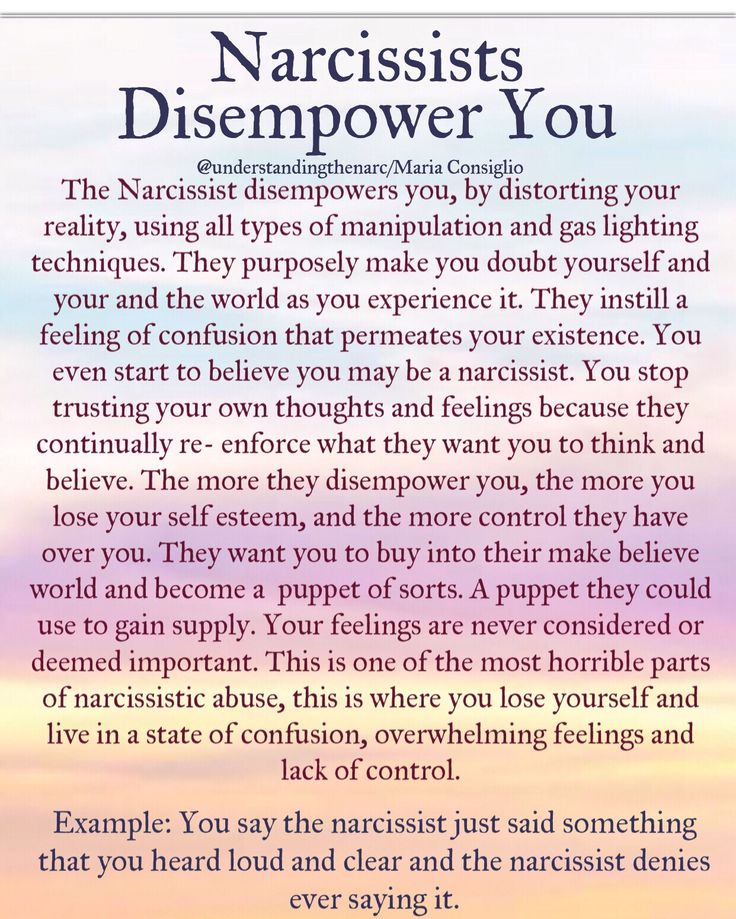 They don't often show affection for children, and even if they do, it's usually just to make themselves look better in the eyes of others. But as soon as a child fools around, they all show their coldness and neglect: "I'm ashamed of you."
They don't often show affection for children, and even if they do, it's usually just to make themselves look better in the eyes of others. But as soon as a child fools around, they all show their coldness and neglect: "I'm ashamed of you."
She treats others like servants
The child of a narcissistic mother will often act like her personal slave, just to get even a modicum of love. “Bring me a glass of water and grab some grapes while you're in the kitchen. Put the peas in the spaghetti." The list can be endless and the child turns into Cinderella. nine0005
She competes with her children
The boundaries between child and parent become blurred. This can happen to narcissistic mothers who feel that their beauty and sexuality are challenged by their growing daughters. “Are you going to the school disco? Oh well, I'm going to dance in a nightclub!
She constantly looks for flaws in her children and compares them to other "ideal" children
Their unreasonable expectations raise the bar too high for any child.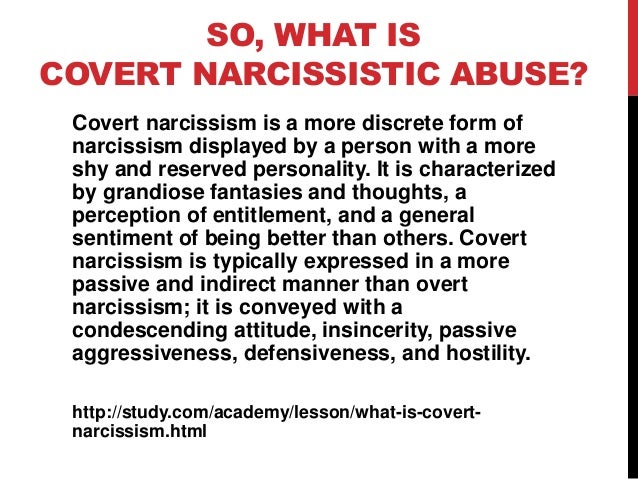 “Can't you do like your classmate? He always says “please” and “thank you” and holds the door for me.” “The daughter of my friend always studies with excellent marks, receives diplomas and is the captain of the KVN team. Why can't you be like her?" nine0005
“Can't you do like your classmate? He always says “please” and “thank you” and holds the door for me.” “The daughter of my friend always studies with excellent marks, receives diplomas and is the captain of the KVN team. Why can't you be like her?" nine0005
Her children live in an insensitive desert
Children raised by a narcissistic mother grow up without the love they should have received. In adulthood, they will experience weakness, lack of emotional attachment and intimacy. Years of manipulation tell.
She lacks empathy
They are too self-centered and unable to show empathy even to their children. They are blind when it comes to the situation their children are facing. “I see in your diary “2”. This is unacceptable and I don't care what you say." nine0005
She has low self-esteem
Their outward self-confidence is just a facade hiding their low self-esteem. Of course, they never show this to others, but children can see what is hidden. Moreover, it is children who suffer from frequent bouts of depression of narcissistic mothers.
She will never let her child go
All parents know that their children will grow up and go into their lives. It can be painful for every mom, but she will be able to accept this fact. However, the narcissistic mother will hold on to her child for as long as possible - she needs to maintain control even into the adult life of the child. She will use every opportunity to make the child feel dependent on her. “You cannot leave me. I need you!" The truth is that narcissistic moms need their kids and their full attention. nine0005
How to reduce the influence of a narcissistic mother
For adults and teenagers, there are several options to reduce the influence of a narcissistic mother:
- minimize communication;
- maintain privacy, maintain personal boundaries and your personal space;
- look for external support - a person who will listen to you carefully.
If you still feel like you didn't get enough love or praise as a child, become the parent of your dreams for your child. Hug children, receive them with love, tell them how much you love them and never doubt them. nine0005
Hug children, receive them with love, tell them how much you love them and never doubt them. nine0005
Based on Lifehack materials
- Read also: What it's about: 10 contexts for the word "harassment" and daughters, Caryl McBride, Ph.D., cried every time. She could not understand why she could not remember the feelings of affection and love in her childhood, and she really wanted to find an explanation for this. Thus was born the book Good Enough, in which McBride, based on real stories, explores (for the first time!) the problem of maternal narcissism and its impact on the lives of daughters. nine0005
“Both boys and girls suffer from the disruption of emotional bonds when one of the parents is a narcissist. However, the mother also serves as a role model for the growing daughter,” says Caryl McBride.
The narcissist mother pushes her daughter to respond to the world around her in the way she herself does, and not in the way that suits the child. The girl constantly tries to guess the reaction of her mother and adapts to her in order to earn approval and love. Of course, she does not understand that such behavior serves only the interests of the mother. nine0005
The girl constantly tries to guess the reaction of her mother and adapts to her in order to earn approval and love. Of course, she does not understand that such behavior serves only the interests of the mother. nine0005
“Unconditional acceptance of a child as a unique individual is a necessary condition for a girl to grow into a confident woman. If you had a narcissistic mother, you were deprived of that,” McBride writes. The concept of love in daughters of narcissistic mothers is distorted. In childhood, they try to earn the approval of their mother. Their definition of love is to please another without expecting anything in return. This negatively affects the girls' future romantic relationships.
Moreover, the patterns and narcissistic traits learned in childhood, grown-up girls, becoming mothers, can be transferred to their daughters and reward the next generation of women of their kind with narcissistic traits. nine0005
9 characteristics of narcissistic mothers
In everyday life, narcissists are called arrogant people who are obsessed with themselves and their desires. In psychology, narcissism is a spectrum disorder that can manifest itself in many ways, from a few character traits to a full blown narcissistic personality disorder. According to the American Psychiatric Association, approximately one and a half million women in the United States suffer from narcissistic personality disorder.
In psychology, narcissism is a spectrum disorder that can manifest itself in many ways, from a few character traits to a full blown narcissistic personality disorder. According to the American Psychiatric Association, approximately one and a half million women in the United States suffer from narcissistic personality disorder.
The Diagnostic and Statistical Handbook of Mental Disorders identifies nine characteristics of narcissistic personalities. nine0005
1. Have an inflated sense of self-importance , may exaggerate their achievements and talents, or expect to be recognized as superior in any situation. For example, a mother speaks only about herself, does not ask her daughter questions, is not going to listen to her, but only shares her news and feelings.
2. Constantly fantasize about limitless success, power, incredible achievement, beauty, or ideal love. For example, a mother earns money cleaning houses and is sure that her famous clients will help her become famous herself.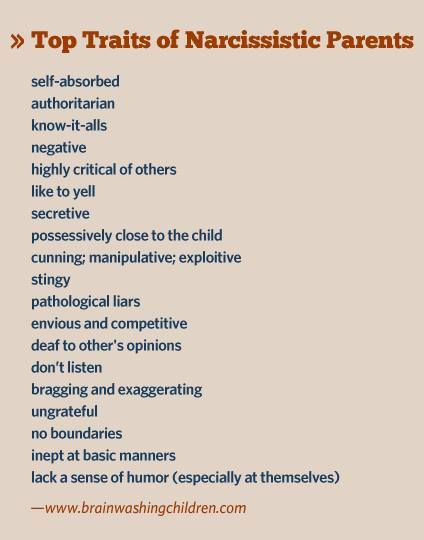 nine0005
nine0005
3. They believe that they are special and unique so they can only be understood by people who are just as special or have a high status. The rest are despised. For example, a mother takes the family to a restaurant and treats the waiters like servants.
4. Crave excessive admiration. Example: A mother demands to be thanked, praised and complimented for everything she has ever done for you.
5. They think that everyone owes them. It is about unrealistic expectations that other people will treat them especially well or automatically meet their expectations. For example, a mother is sure that she is too important a person to stand in line. nine0005
6. They exploit others , that is, they use others to achieve their own goals. For example, a mother is friends only with those who can be useful to her.
7. Demonstrate a lack of empathy : unwilling to notice other people's needs or cherish their feelings. For example, a mother constantly points out her daughter's "mistakes", criticizes and humiliates her.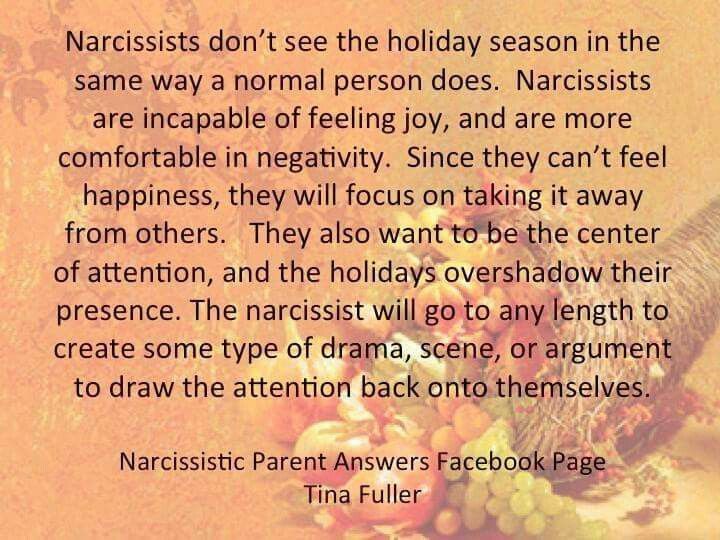
8. Often envious of others or feel that they are the object of envy of others. For example, a mother claims that she has no girlfriends because women envy her. nine0005
9. Demonstrate arrogance, arrogance and attitude. For example, a mother believes that her children are too good and should not play with peers from less wealthy families.
The degree of narcissism can vary. McBride emphasizes that even if your mother doesn't have all nine traits of people with severe narcissistic personality disorder, her narcissism still hurt you. If so, then three destructive mindsets have haunted you throughout your life:
- Something is wrong with me.
- My value is in what I do, not in who I am.
- It's impossible to love me.
10 relationship problems with narcissistic mothers
In her research on maternal narcissism, McBride identified ten common relationship problems between mothers with narcissistic traits and daughters.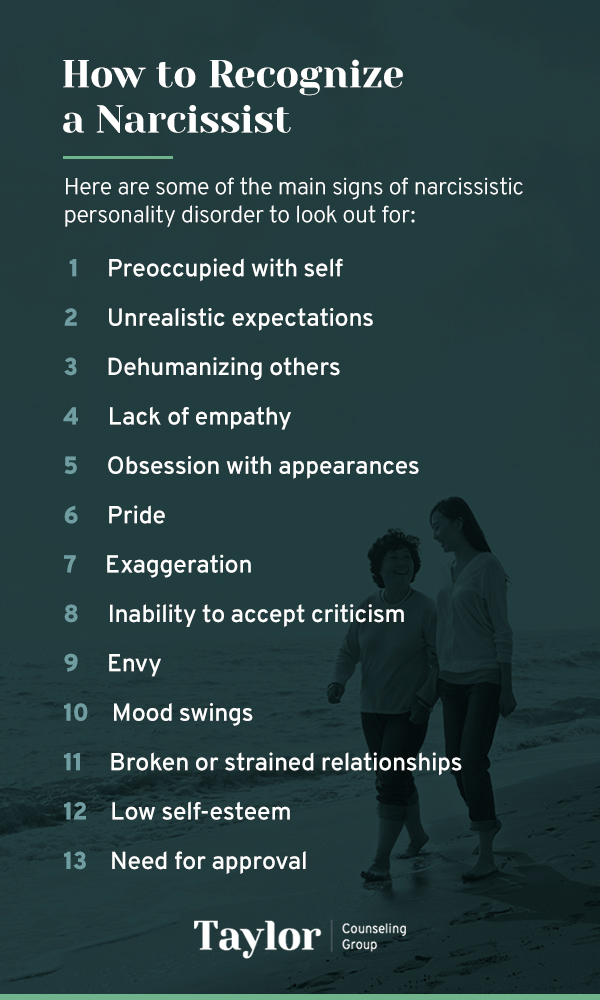 It doesn't matter if you have experienced all the features in your life or only some of them. This only indicates how clearly narcissism is expressed in the behavior of your mother. nine0005
It doesn't matter if you have experienced all the features in your life or only some of them. This only indicates how clearly narcissism is expressed in the behavior of your mother. nine0005
1. You notice that you are constantly trying to win your mother's love, attention, and approval, but fail to please her. Narcissistic mothers are critical and do not accept daughters as they are.
2. The mother emphasizes that it is more important for her how something looks, and not how you feel about it. Your emotions don't matter to her. She consoles you not with hugs, but with buying new clothes.
3. Your mother is jealous of you: because of your appearance, material well-being, achievements, education, and even because of your relationship with your father. nine0005
4. Narcissistic mothers control the interests and activities of their children and do not support their daughters in what they really want.
5. Everything in the family always revolves around the mother.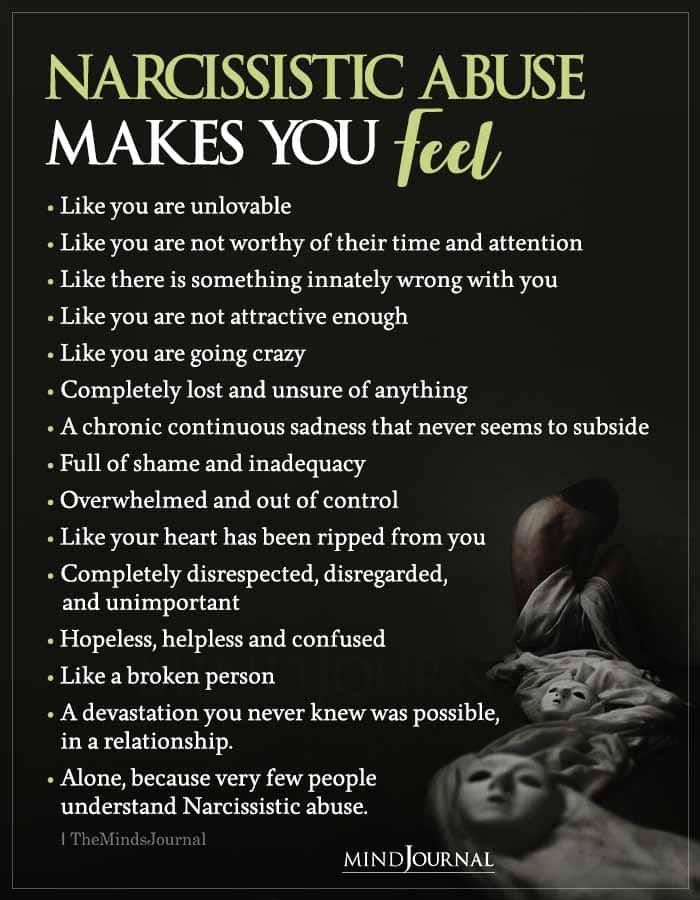 Narcissists do not tolerate rejection and want everyone to obey their wishes.
Narcissists do not tolerate rejection and want everyone to obey their wishes.
6. The mother is incapable of empathy. The feelings of a daughter growing up next to her are not taken seriously, and she does not feel her own importance. Regardless of age, such daughters may withdraw, stop talking about themselves, or even notice their feelings. nine0005
7. The mother cannot cope with her own emotions. She "stiffens" or "disappears" when it comes to feelings. She does not allow herself or her daughter to express what is in her soul - their relationship is doomed to remain superficial, there is no deep connection in them.
8. Mother often criticizes and condemns. She does it because she doesn't like herself. In this way, she raises her daughters to be extremely sensitive to other people's opinions and makes them constantly feel like they are not good enough. nine0005
9. Your mother treats you like a friend, not like a daughter. In a healthy relationship, the mother plays the role of an adult and takes care of the child. Mothers with narcissistic traits did not receive proper care from their parents in childhood, therefore, emotionally, they resemble children who constantly need support.
Mothers with narcissistic traits did not receive proper care from their parents in childhood, therefore, emotionally, they resemble children who constantly need support.
They often involve their little daughters in the adult world, for example by sharing difficulties with their husband. In this case, the daughter begins to feel loneliness and danger - she does not have a parent to rely on. She feels guilty about not being able to solve her mother's problems and internalizes the "I'm not good enough" mentality. nine0005
10. There are no personal boundaries in your communication with your mother. Emotional separation is an essential part of psychological growth, but the narcissistic mother does not allow her daughter to become a separate person. In family life, she has no boundaries, there is nothing personal. For a narcissistic mother, a child is an extension of herself: she can talk to her daughter on the most inappropriate topics, she has the right to interfere in everything and share information with anyone.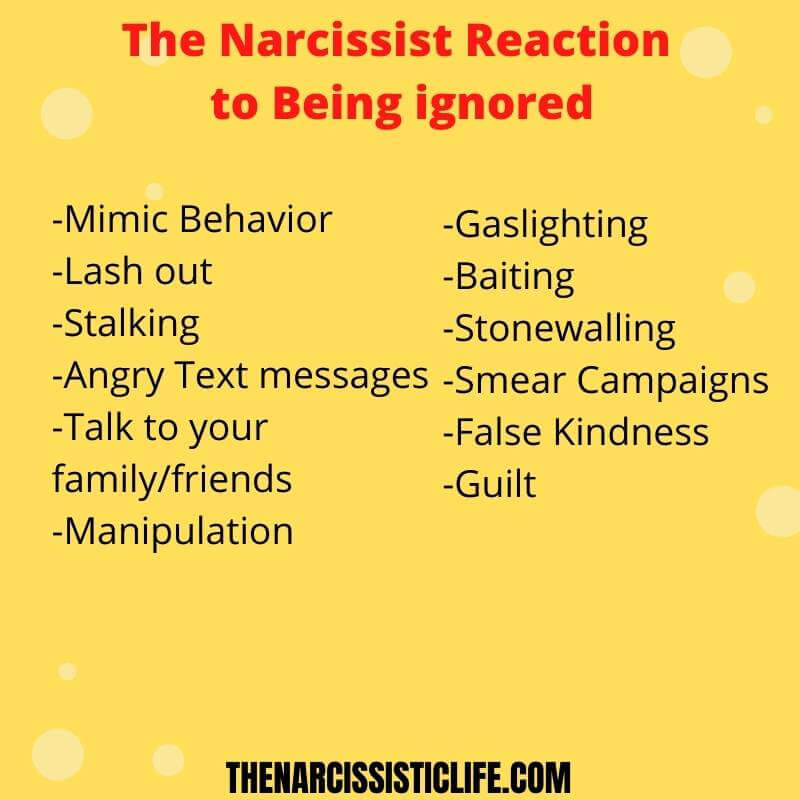
How narcissism manifests itself: an absorbing and ignoring mother
A mother can pass on knowledge, confidence and self-love to her daughter only if she herself has these skills. Moreover, for this to be successful, a woman must build a deep and balanced relationship with her daughter.
Narcissism is the opposite of balance. In the families of narcissistic mothers, everything is taken to the extreme. “Staying true to intergenerational twisted love, most narcissistic mothers place either too much emphasis on raising their daughters (absorbing mother) or very little (ignoring mother),” McBride writes. nine0005
The absorbing mother dominates her daughter with care, dominates every aspect of her life and keeps them under control.
Such mothers often seem wonderful. They are involved in the life of their daughters, doing something for them, for them and together with them, so others perceive them as interested parents. Alas, the consequences of such behavior are sad.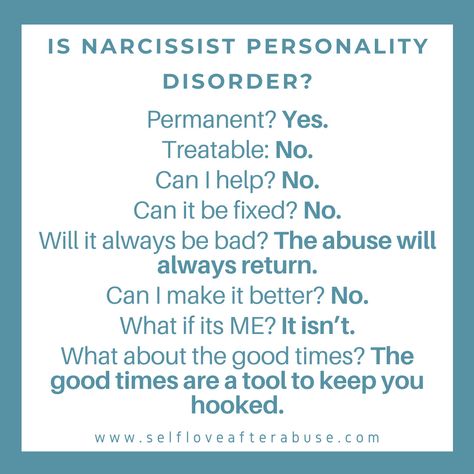 As a result, daughters have low self-esteem, they often feel their own worthlessness. nine0005
As a result, daughters have low self-esteem, they often feel their own worthlessness. nine0005
An ignoring mother, on the contrary, does not pay enough attention to her child. She does not take or deny the feelings of children seriously. Excluding especially difficult cases, such parents provide the child financially: their own room, food, clothes, but they refuse their daughters upbringing, emotional support and empathy. Therefore, they feel invisible and begin to think that as individuals they do not matter.
McBride emphasizes that the two styles described are not mutually exclusive. The narcissistic mother can switch from absorbing to ignoring and back again. In addition, she can choose the type of behavior in relation to her daughters: with one daughter, she can be an absorbing mother, and with another, an ignoring one. nine0005
Perfectionism and Sabotage: How Children React to Mother's Narcissism
When two daughters are raised by the same narcissistic mother, they often take on very different roles. Both girls think they are loved for what they do, but behave differently. One sister, as it were, says to the narcissistic mother: “OK, I will show you what I am capable of and what I am worthy of.” She becomes a perfectionist who constantly strives to achieve more. Another sister, having adopted the same attitude, begins to believe that everything is meaningless and she will not achieve anything anyway. She goes into passivity and self-sabotage. nine0005
Both girls think they are loved for what they do, but behave differently. One sister, as it were, says to the narcissistic mother: “OK, I will show you what I am capable of and what I am worthy of.” She becomes a perfectionist who constantly strives to achieve more. Another sister, having adopted the same attitude, begins to believe that everything is meaningless and she will not achieve anything anyway. She goes into passivity and self-sabotage. nine0005
Growing up, successful daughters seem like superheroes, but their accomplishments and high performance do not bring satisfaction or inner comfort.
They constantly struggle with the feeling of their own inadequacy and never notice how much has already been done. They are constantly looking for what else they can do to prove their worth, and often work themselves up to burnout and chronic fatigue syndrome. There are no problems if you are successful, doing what you love, while praising yourself and taking care of yourself. nine0005
Alas, many super-successful daughters, suffering from workaholism, cannot slow down, which leads them to health problems. Here's proof that I can't be who you want me to be!" They give up easily, try to numb the pain with addictions, are unable to break free from self-destructive habits, and refuse to realize their potential.
Here's proof that I can't be who you want me to be!" They give up easily, try to numb the pain with addictions, are unable to break free from self-destructive habits, and refuse to realize their potential.
As they get older, such daughters start looking for a replacement mother, someone who can take care of them. They are smart, talented and capable of many things, but they do not believe in themselves. So they find alternative unhealthy ways to get other people to take care of themselves: huddling in the basement of an aunt's house, ending up in jail, or living on welfare or unemployment benefits. nine0005
How to overcome childhood trauma
The third part of his book McBride devotes entirely to the process of recovery. She provides many exercises that can help you accept and live through traumatic experiences, and also recommends contacting a psychotherapist. The specific steps to recovery for daughters of narcissistic mothers are as follows:
- Embrace the limitations and feel the grief of not having the mother you dreamed of.
 nine0068
nine0068 - Separate psychologically from the mother and reformulate the negative beliefs received from her into positive ones.
- Accept your own feelings, desires and personality.
- Learn to communicate with your mother in a new, more environmentally friendly way.
- Learn to recognize your own narcissistic traits and decide not to pass on this emotional legacy to your children.
- Teach yourself to grieve.
In her twenty-eight years as a psychotherapist, McBride has noticed that most people try to skip the last step. This is quite expected, because breaking through denial and feeling pain is incredibly difficult. Meanwhile, mourning is the most important step that plays a decisive role in the process of change. nine0005
It starts with one decision: you allow your feelings to be. This needs to be learned, especially if you have been told all your life to shut up, not to grunt or not feel anything, to lie and pretend that everything is in order when in fact it is not.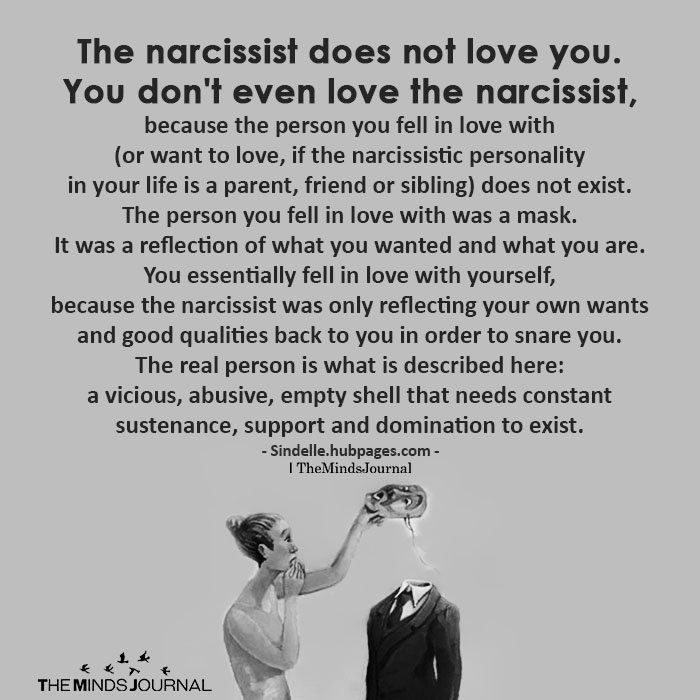
You can try to rationalize the pain by thinking, "I shouldn't feel like this" or "It wasn't all that bad." It won't help. Whatever emotions you experience, it is important to let them be. Sometimes this will require being alone in silence. It is important to live without being distracted and without becoming dependent on work or any other that drowns out emotions. nine0005
Take time to be alone and grieve. Do this several times until you begin to feel relieved.
Let the emotions leave the body at their own speed. To do this, you can stay at home alone, take long walks, run, go to the mountains, drive or sit in a coffee shop. Find what is comfortable for you.
During the mourning process, you will go through five stages: acceptance, denial, bargaining, anger, depression. It is important to go through them all and finally accept the fact that your mother is really narcissistic and did not give you the love that you wanted and needed. Only then can you truly live the grief.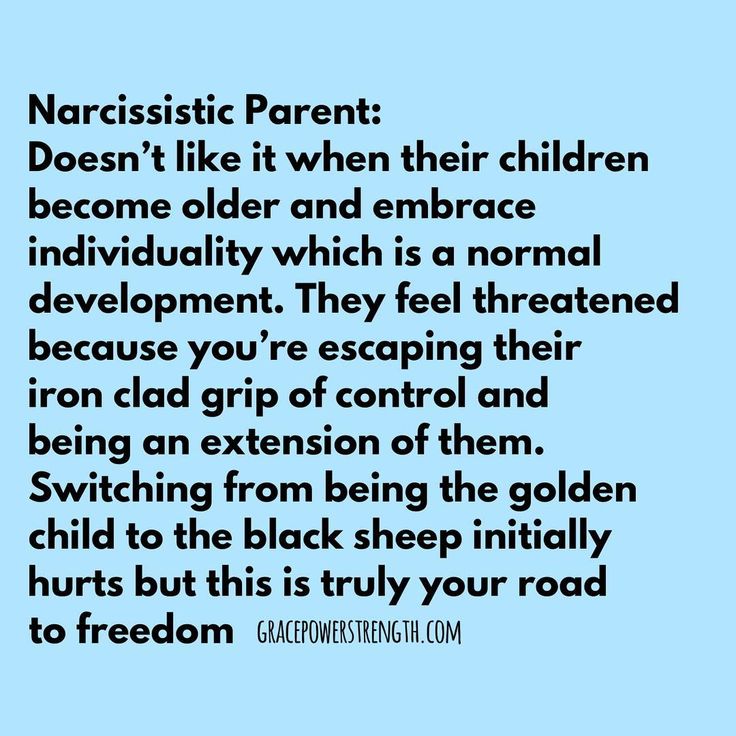 nine0005
nine0005
For effective mourning, McBride recommends:
- Keep a diary. It symbolizes a serious attitude towards recovery. Writing down feelings is another way to let them go. Keeping a diary provides an opportunity to free yourself from trauma.
- Do not listen to other people's opinions while you are in this process. With the best of intentions, friends and relatives will say something like: “Yes, forget about it already”, “You cannot change the past, stop trying” and “Stop thinking about the past, live here and now.” They don't understand that if you don't face your sadness, it will stay with you forever. nine0068
- Let the guilt be. Guilt will inevitably come. McBride notes that in almost every clinical session and every interview, the daughters of narcissistic mothers admitted that they were uncomfortable because they talked about their mothers in a negative way. This is a cultural taboo that will have to be overcome in order to heal from trauma.
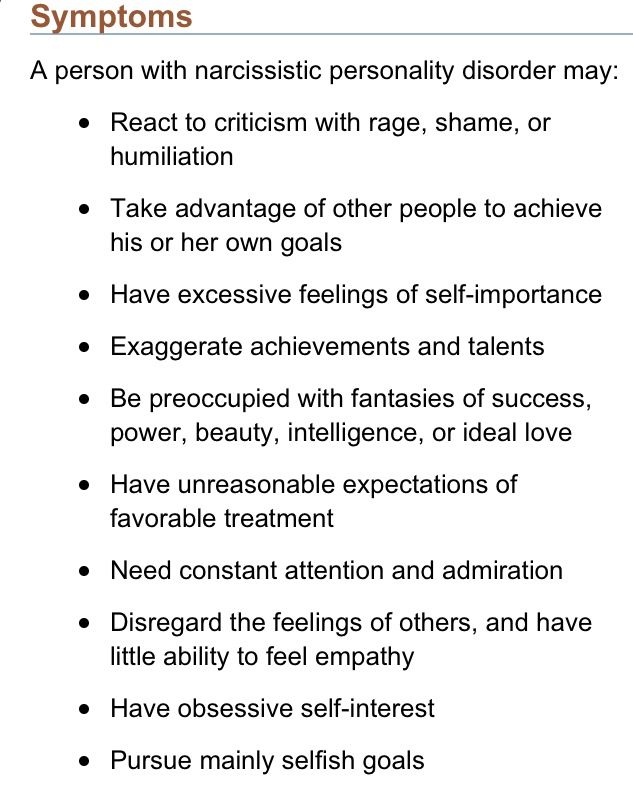
- To grieve for that little girl that you failed to become because of the need to early take care of your mother, and sometimes the whole family. nine0068
How to communicate with your mother in recovery
At this stage of healing, it is important to explore ways to manage your relationships and maintain the ability to behave in a healthy way. You have changed, but your mother has not.
McBride argues that in full blown narcissistic personality disorder there is little chance of effective treatment or change. The desire to change is important here, and narcissistic clients, when contacting a therapist, try to quickly find answers to questions about how to interact with other people. They do not assume that the problem may be in themselves, and quickly leave, believing that something is wrong with their therapist. nine0005
A narcissistic mother can be too toxic, so it's important for a daughter to make the decision to break contact with her mother during her recovery.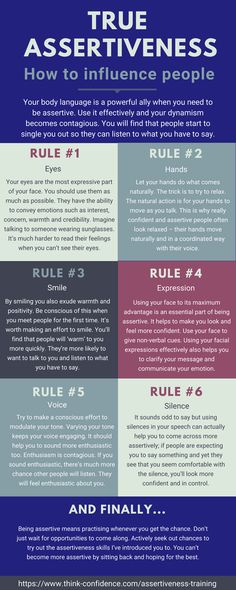 If the mother is unable to change and you are constantly attacked and insulted by her, it is important to understand that cutting off contact with her is the healthier solution.
If the mother is unable to change and you are constantly attacked and insulted by her, it is important to understand that cutting off contact with her is the healthier solution.
Due to the rarer communication, your contact will become polite. It is important not to expect anything from the mother, then you will experience less disappointment. McBride elaborates that this schema works best after you complete the healing process by accepting your mother's limitations and truly separating from her. nine0005
How to forgive your mother and is it necessary?
You do not have to wait for your mother's approval by moving away from her during therapy. If she does not leave you alone, you will have to learn to set personal boundaries. “Be clear about what you will and will not do,” McBride writes.
Many people are afraid to declare their boundaries because they worry about the feelings of others. Daughters are also often afraid to install them because mothers might get angry.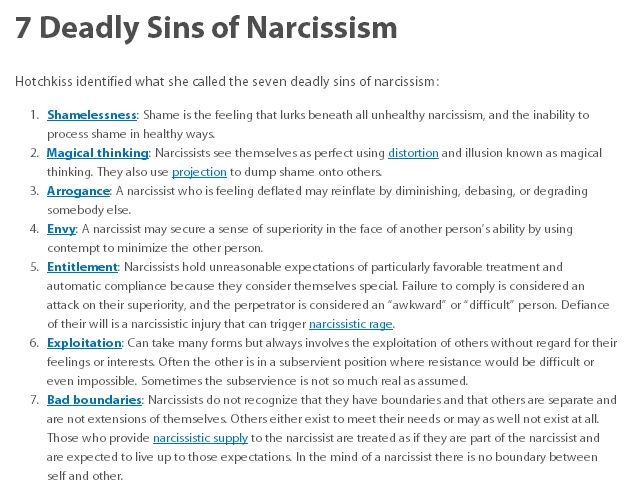 This fear is very real, as narcissists often cut people out of their lives. nine0005
This fear is very real, as narcissists often cut people out of their lives. nine0005
It is important to understand that the mother has already left you emotionally, there is little she can do to harm you on a similar scale. come to you for dinner on Sundays. I need to be alone and I won't call you. When I'm done, I'll let you know. You don't need to call me for a while unless absolutely necessary. I'm not angry, and all this has nothing to do with you. It's just what I need right now." The mother may ask if everything is all right with you, and you can emphasize that everything is fine with you and you are not angry with her. nine0005
It happens that the mother continues to call, come to your house, manipulate. “Your task is to keep the boundaries and not react after you have informed her about it. She rings the doorbell, you don't open it. She calls on the phone, you don't pick up. She speaks to you, you once again confirm the seriousness of your intentions. How she handles this situation is her problem, not yours.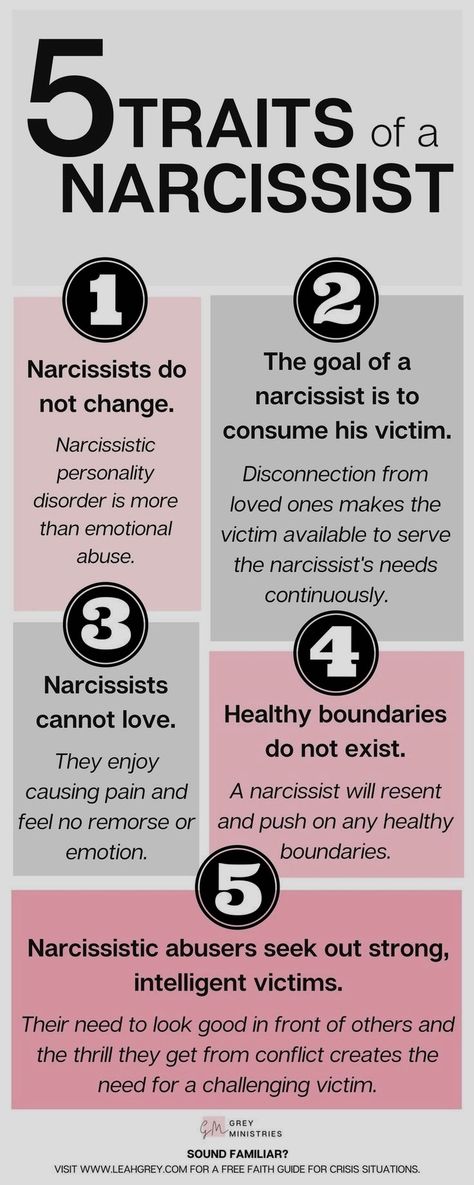 You are not responsible for her feelings. You can act kind and gently remind her that you will start communicating with her again when you are able to do so. nine0005
You are not responsible for her feelings. You can act kind and gently remind her that you will start communicating with her again when you are able to do so. nine0005
Many are taught from childhood that good girls forgive and forget offenses. We are expected to forgive everyone who offends us, because it is right. McBride emphasizes: “Forgiveness has a positive charge and helps in healing if we see that the person did not wish us harm. However, trying to deny the pain we have experienced will not do any good. Moreover, by refusing to admit that we have been harmed and to understand that a person may well do it again (intentionally or not), we put ourselves at risk. nine0005
Many misunderstand forgiveness as an excuse for the behavior that harmed us. As if nothing terrible had happened. McBride recommends forgiving only those who are ready to accept responsibility - after the person has admitted his wrong, realized it and truly repented. The author of Good Enough advises letting go of the situation internally, which will definitely do you good: “Forgiveness comes when you live these feelings in order to move on and live your life.